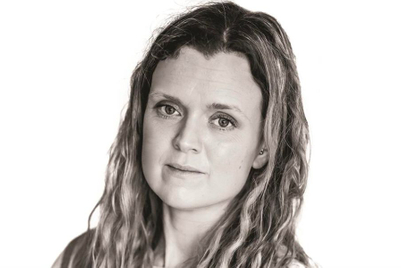
Of all the pazazz surrounding this year's Cannes Lions International Festival of Creativity, three topics stole the show: creators, Elon Musk and AI.
AI was a popular talking point in South France this year—just as it was last year. However, conversations about the technology matured from early speculations about how AI could transform advertising to practical discussions about implementing the tech into business operations.
Havas made the biggest AI announcement of the week, with CEO Yannick Bolloré revealing a €400 million ($428 million) investment in AI and other key technologies over the next four years.
Meanwhile, OpenAI CTO Mira Murati joined Accenture Song CEO David Droga for a fireside chat about job security and how brands can use AI to its full potential.
AI also made a strong showing in the awards ceremony, cited as contributing to work that earned Grands Prix in Media, Entertainment for Sport and Innovation. This is the first year entrants were required to disclose when submissions used AI.
However, according to Cannes jury presidents and members, whether or not a campaign utilised AI was one of the last things judges considered.
Innovation judges said they first examined how novel a campaign’s idea was before moving on to execution, including how it developed technology and how simple it was for consumers.
Only when those things were considered did judges move onto AI. Even then, AI only contributed to a submission’s final score if the campaign couldn’t have been created without it, said Diego Machado, global chief creative officer at AKQA and jury president of the Innovation category.
“Just taking the example of the Grand Prix, that idea wasn’t possible maybe a year ago,” Machado said.
The top award went to Klick Health’s 'Voice 2 Diabetes' campaign for KVI Brave Fund. It involved an app that uses AI to detect Type 2 diabetes by finding vocal differences between people with the disease and non-diabetic individuals. It also won a gold Lion in Pharma.
According to Machado, AI enabled brands to execute ideas that were too complicated years prior.
“This is my 10th anniversary at Cannes,” Machado said. “For years, you would see many ideas but maybe 70% couldn’t be executed because it was too complex or expensive, or you need more than two or three vendors to help. AI has cut that, and the gap between what you create and how you execute is closing.”
However, jury members in other categories minimised the importance of AI. They stated that it didn’t directly lead to major wins, and instead played a small part in enabling ideas that humans largely executed.
Elda Choucair, CEO of Omnicom Media Group MENA and awarding jury member of the Media category, was surprised to see the Grand Prix winner described as an AI campaign.
“I don’t even remember it having AI because that was not the basis of why we believe this was an amazing piece of work,” she said.
Gut São Paulo’s Handshake Hunt for Mercado Libre won the media Grand Prix by using AI to scan TV content for handshakes, the e-commerce company’s logo. When it found an instance of two hands locking together, a QR code would appear on screen to guide viewers to Black Friday deals.
According to Choucair, the campaign’s use of AI was not a major factor in the judging criteria. Instead, the jury focused on the campaign’s objectives, what consumer insights drove the idea, the quality of the idea and how well it executed and what business results the campaign achieved.
Advertisers, especially creatives, have had a strained relationship with AI lately. Last week, Toys “R” Us launched a campaign created using OpenAI’s Sora that earned the ire of creatives. In May, creatives were equally critical of Apple’s Crush ad, calling the visual of machines destroying and subsuming various art forms tone-deaf as the industry nervously anticipates AI taking jobs—a narrative CEOs and senior advertisers have tried to counter.
In Entertainment for Sports, the jury also downplayed the presence of AI in the Grand Prix-winning work.
Marcel’s WoMen’s Football campaign for telecom provider Orange secured the category’s Grand Prix by deepfaking women’s soccer highlights to look like they came from men’s games to prove women’s soccer is just as exciting.
“With that piece of work, it was around 10% AI and 90% human work,” said Louise Johnson, CEO of Fuse UK and EMEA and jury president of the Entertainment for Sports category.
But Marcel saw AI’s role differently. Gaëtan du Peloux, CEO of Marcel, has told AdAge that AI wasn’t just helpful as a production tool—it made the team realize the idea was possible.
Cannes juries also haven’t established a use for AI in the judging process. AKQA’s Machado said generative AI got him familiar with industries he knew little of, but there was no jury-wide process or standard for using AI to reduce their workload.
OMG’s Choucair stated that jury members may have used AI individually before grouping up in France, but it wasn’t formally used in the judging process. Instead, they worked with submissions printed on paper, as they always have.
Choucair sees a use case for AI judging in the future, however.
“If you get all of this data which is already written and put all of these videos on a machine, then give that machine certain criteria, can the machine spit out what the winner is based on the criteria?” she said. “That would be interesting … but there was a huge amount of deliberations and debate during the sessions.
“Everything is about perspective. That’s why we have these juries.”


.jpg&h=334&w=500&q=100&v=20250320&c=1)

.jpg&h=334&w=500&q=100&v=20250320&c=1)

.jpg&h=334&w=500&q=100&v=20250320&c=1)

.jpeg&h=334&w=500&q=100&v=20250320&c=1)


.jpg&h=334&w=500&q=100&v=20250320&c=1)


.png&h=268&w=401&q=100&v=20250320&c=1)


.jpg&h=268&w=401&q=100&v=20250320&c=1)

+1.jpg&h=268&w=401&q=100&v=20250320&c=1)